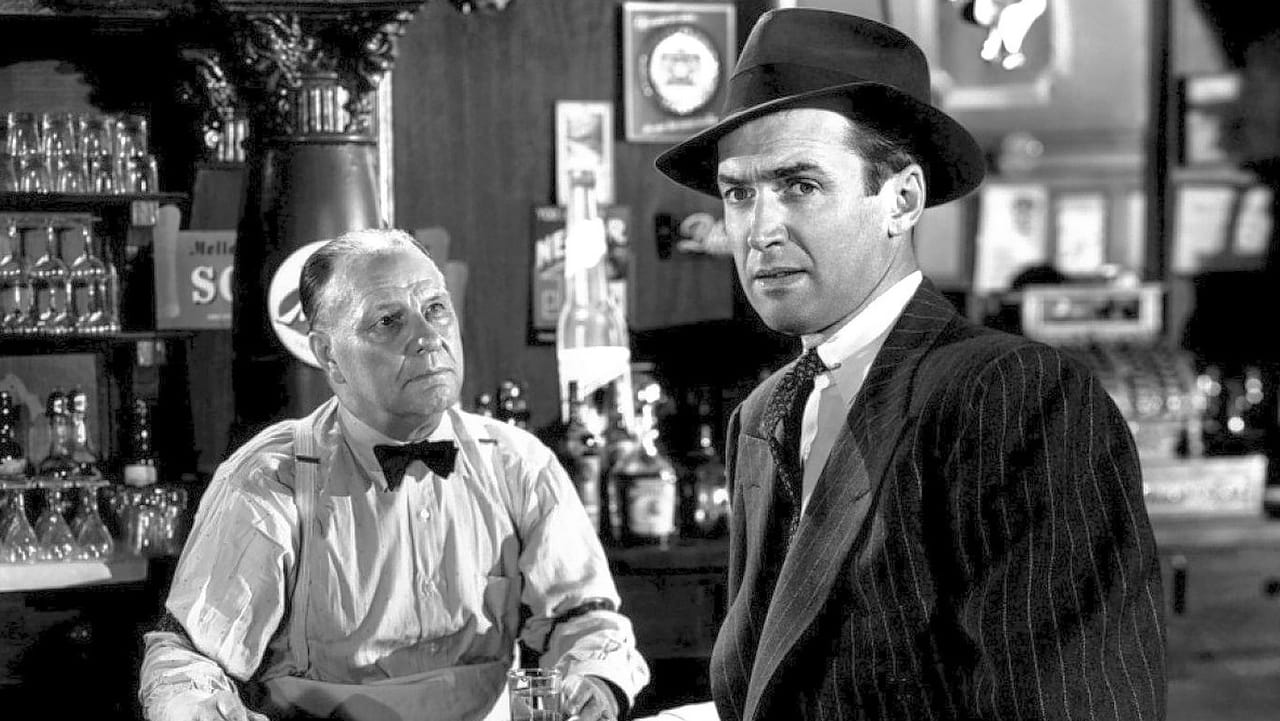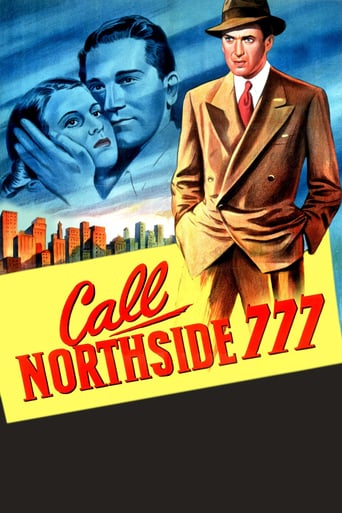

When this movie started, I wasn't sure that I would truly enjoy it. As you can imagine, I was pleasantly surprised when I got to the middle of the movie and found that it was actually somewhat interesting. As far as the cinematography of this film is concerned, the lights and sound really helped to enhance the intensity that this film deserved. It amazes me how the simple change in the lights can make or break the seriousness of the characters and majorly affect the way the movie comes across to the audience. The quick cuts made in the editing process also really helped to make the film more enjoyable and action packed which is what ultimately lead to my enjoyment. I would recommenced this film to anyone who is looking for a film that will excite them and will ultimately surprise them!
... View MoreI absolutely love films like this one. I guess I know how predictable they are- someone is wrongfully convicted of a crime they did not do, a loved one tries with everything they have to prove that their loved one is in fact innocent, and true justice is eventually served. Even though it is so predictable, I still absolutely love watching the story unfold and gathering information for myself as I go. This film was no different, and again, I really did enjoy watching the story unfold as well as the truth come out. It is such a relieving feeling when the truth comes out, not only for those in the film but even for the audience too.
... View MoreAccording to this film, there were 365 murders in Chicago in 1932, "one for every day of the year". (Actually, someone seems to have forgotten that 1932 was a leap year. Was nobody killed on 29th February?) Presumably people in 1948 were supposed to find that figure particularly appalling, a shocking reminder of just how high the crime rate was in the Bad Old Days of Prohibition, but today it would be a very low one. In 2013 there were 415 murders in Chicago, and this was the lowest figure since the mid-sixties. On several occasions during the seventies, eighties and nineties the annual figure rose to nearly a thousand. "Call Northside 777" tells the story of one of those killings, that of Police Officer William Lundy. Two young Polish-Americans named Joseph Majczek and Theodore Marcinkiewicz were convicted of the crime and sentenced to 99 years in prison, but doubts remained as to their guilt. The film is based on the facts of the case, but the names of the parties involved are changed. The dead officer becomes John Bundy and the two convicted men Frank Wiecek and Tomek Zaleska. In 1944, eleven years after the convictions of Wiecek and Zaleska, the city editor of the Chicago Times notices a classified advertisement in his newspaper offering a $5,000 reward for information about Bundy's killers. He assigns a reporter named Jim McNeal (based on a real journalist named Jim McGuire) to investigate. McNeal discovers that the ad has been placed by Wiecek's elderly mother who believes strongly in her son's innocence. (The ad asks people with information to "call Northside 777" which is her telephone number). McNeal is initially sceptical, believing Wiecek to be guilty, but as he uncovers more evidence he changes his mind, and the paper launches a campaign to prove the innocence of the two men. The police and the state attorney's office, however, are unwilling to admit that a miscarriage of justice has taken place, and try to cover up any evidence which might establish their innocence. The film ends with Wiecek (based on Majczek) triumphantly vindicated but Zaleska (based on Marcinkiewicz) remains in jail, seemingly forgotten. The reason was that by 1948, when the film was made, Majczek had been released from jail but Marcinkiewicz had not as the authorities were not yet satisfied that he had played no part in the murder. (He was eventually cleared of the crime and released in 1950). Although the real-life events upon which the film was based had occurred only a few years before it was made, meaning that most people would have been aware of Majczek's release, director Henry Hathaway nevertheless provides a tense, thriller-style ending in which McNeal, Wiecek's lawyer and the members of the parole board anxiously await the arrival of a key piece of evidence which might prove his innocence. The film is sometimes described as a film noir, but I am not sure that it really belongs in that category. I sometimes think that the genre might more accurately have been called "film gris". The great noirs may have been made using black-and-white photography- Hathaway was later to make "Niagara", one of the very few colour examples- but morally they tended to avoid black-and-white absolutes, painting everything in various shades of grey. In "Call Northside 777" there are plenty of black-and-white absolutes- more film noir-et-blanc than film noir. Wiecek is a noble character unjustly wronged by the system, McNeal is a tireless crusader for justice. Those who seek to impede McNeal's investigations for self-serving reasons are contemptible. Later in his career, particularly in some of the Westerns he made with Anthony Mann in the fifties, James Stewart showed that he was an actor who could deal very well with moral ambiguity and shades of grey, but in the forties he was more associated with straightforward "Mr Nice Guy" characters, and gives a fine performance as the determined and selfless McNeal. Another good contribution comes from Lee J. Cobb as his editor Brian Kelly. "Call Northside 777" is made in a semi-documentary style, closely following the facts of the Majczek and Marcinkiewicz case. It is an efficient mixture of documentary and crime thriller, paving the way for later films based upon real-life miscarriages (or alleged miscarriages) of justice such as "I Want to Live!" and the British-made "Yield to the Night". 7/10
... View MoreSo says one of the observers on random wrongful conviction victim Frank Wiecek in this docudrama (= based on a true AND representative story of the American Way). CALL NORTHSIDE 777 is refreshing for its post-WWII naivete in which inhabitants mistook America for a Democracy (one man, one vote) as opposed to the corporate conglomerate it actually is (one dollar, one vote, codified into law explicitly with the recent CITIZENS vs. UNITED U.S. Supreme Court decision). Why someone as smart as George Bailey (or Chicago TIMES reporter Jim McNeal here) would not know this is beyond me. For 150 years, U.S. law enforcement has had two prime directives: protect rich people's property, and protect itself. Any other goal comes in a distant third at best. When anyone breaches raisons d'etre #1 OR #2, a random poor person can be easily incarcerated and\or fried if the real culprit is not conveniently available or appropriate to convict, as is the case with this story's police patsy, Frank Wiecek (and his inexplicably lost-at-the-end co-defendant, Tomek Zaleska) in this film. Released after 11 years of political imprisonment with just $10, crusading Chicago TIMES reporter Jimmy Stewart tells Frank he's lucky he's been given 91 cents for each of his 11 years at hard labor. So what if Frank lost his youth and his wife, and not even O.J. is looking for Officer Bundy's "real killer" in this case (the late police Captain Norris?). In one of Wikipedia's articles on world justice, it's noted that the percentage of inmates and executed people in the U.S. who were below the poverty line as free civilians is 71%, 20 points higher than any ACTUAL world Democracy (= one man, one vote). Though the Tea Party labels poor people as Satan's spawn, CALL NORTHSIDE 777 proves they're the salt of the earth, as Jesus said, as well as easy pickings when the criminal U.S. justice system needs a scapegoat.
... View More